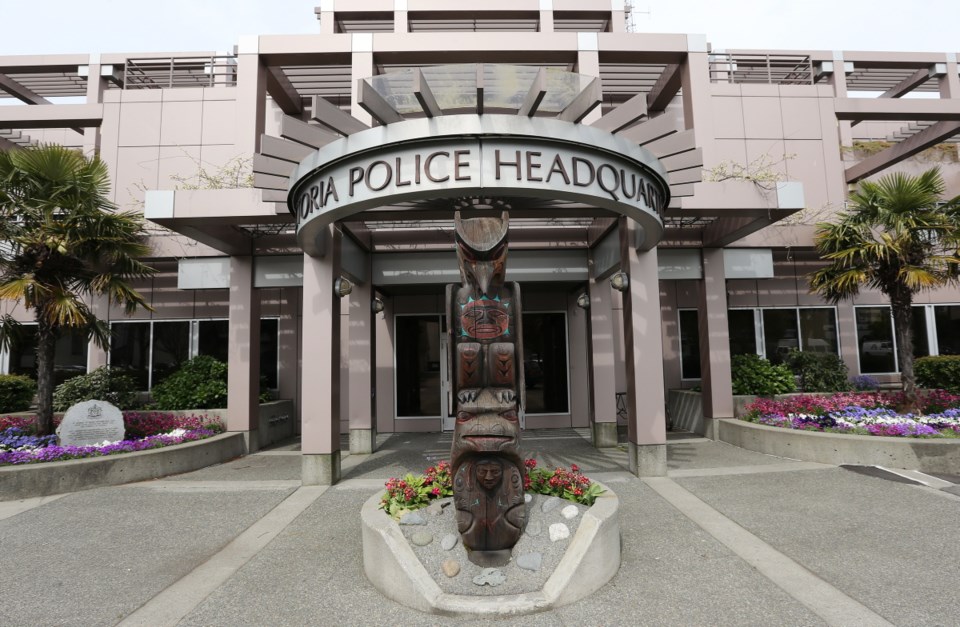Victoria police officers are getting a pay raise, and some elected officials are concerned the wage hikes are too high compared with those for other municipal employees.
The Victoria Police Union’s collective agreement includes a 3.5 per cent wage increase for 2016 and 2.5 per cent each year for 2017 and 2018. Victoria police officers have been without a contract since the end of 2015 and the wage hikes will be retroactive.
That means by 2018, a first-year probationary constable will earn $31.35 an hour, up from $28.85 in 2015. A five-year first-class constable will earn $44.79 an hour, up from $41.21, and a 20-year constable will earn $51.51 an hour, up from $47.39.
The increase over three years is in line with what the Vancouver police union negotiated after going to arbitration.
“The wage increases that have occurred for protective services have jumped significantly over the number of years, well out-stripping any collective bargaining [for other sectors], so that’s a problem,” said Esquimalt Mayor Barb Desjardins, who was the police board representative for the Greater Victoria Labour Relations Association.
The association ratified the collective agreement with the Victoria and Esquimalt Police Board and the Victoria Police Union.
As a result, many of the highest-paid people in a municipality are senior police officers and firefighters, she said.
Desjardins said the effort to keep wages on par with those of other police departments “leaves us hamstrung” at a time when municipalities are dealing with many pressures in controlling costs.
According to the Union of B.C. Municipalities, since 1984, wages for municipal staff represented by the Canadian Union of Public Employees have kept pace with average weekly wages in B.C. — slightly exceeding the increase in the consumer price index.
Police and fire employee wages, however, “have substantially exceeded both inflation and CUPE wages, exacerbating differences between protective-service employees and other municipal employees,” the UBCM report notes.
Victoria Mayor Lisa Helps, co-chair of the police board, acknowledged the disparity between police officers’ raises and raises given to other city employees. However, the negotiating team has “little to no control of what we negotiated with police. This is the same as Vancouver [police officers] got.”
She also noted that police officers deal with traumatic situations such as domestic violence, murders and overdose deaths, so their salaries cannot be compared with those of other public servants.
City of Victoria Coun. Geoff Young said he’s concerned that arbitration rulings for other departments dictate wages, without enough consideration for local conditions.
“I have always felt … that local conditions and circumstances and recruitment issues should play a much bigger role in those decisions,” said Young, adding that if Victoria police attract a large number of applicants during recruitment drives, “we would take that as a position that salaries are adequate.”
The Victoria Police Union was not available for comment on Thursday.
Wages represent 79 per cent of the Victoria Police Department’s $52-million budget. Victoria police asked Victoria and Esquimalt council for an additional $2.2 million for the 2017 budget, about $1.38 million of which was for increased salary and benefits for existing staff. The City of Victoria pays 85.3 per cent of the police budget, while the Township of Esquimalt pays 14.7 per cent.
— With files from Bill Cleverley



